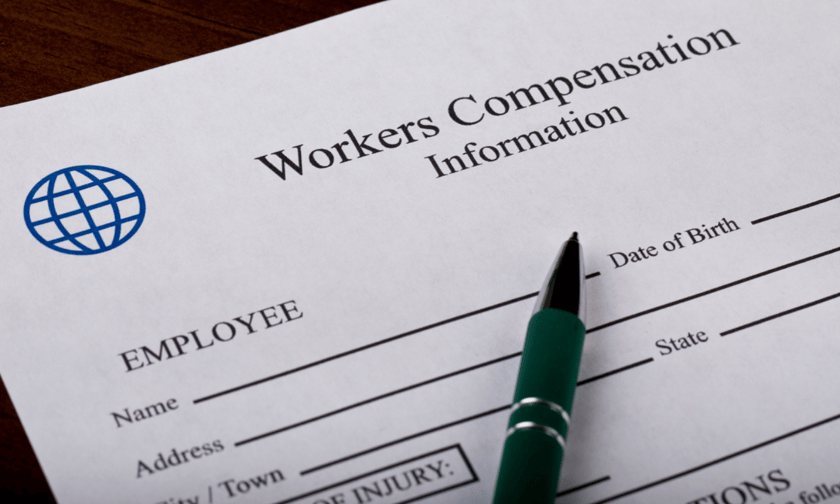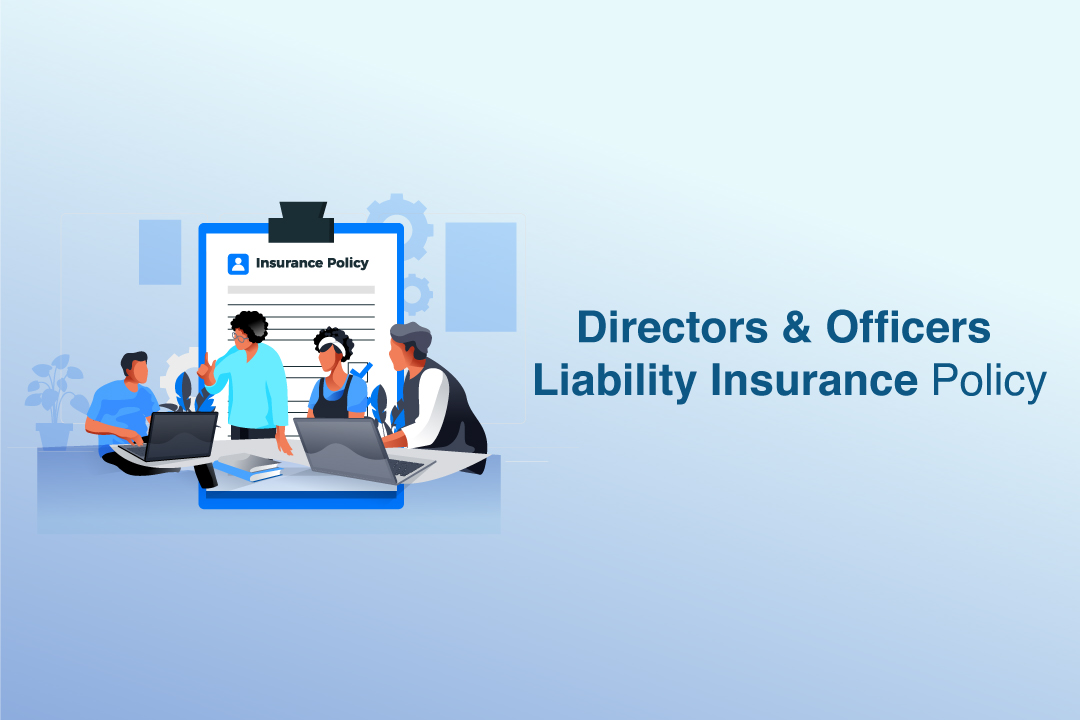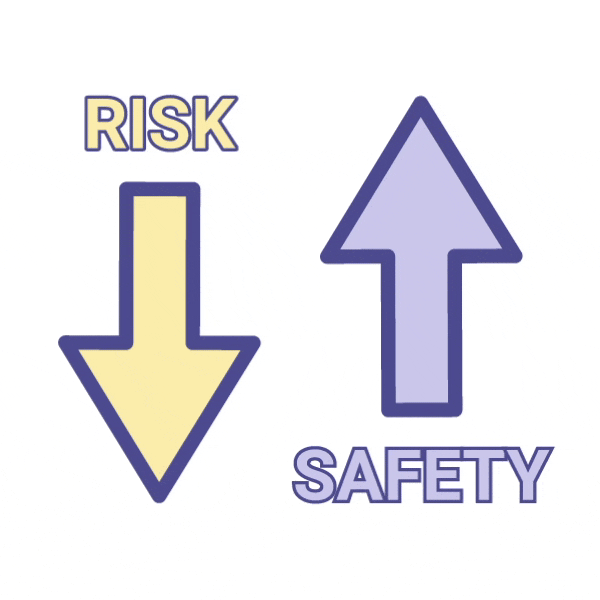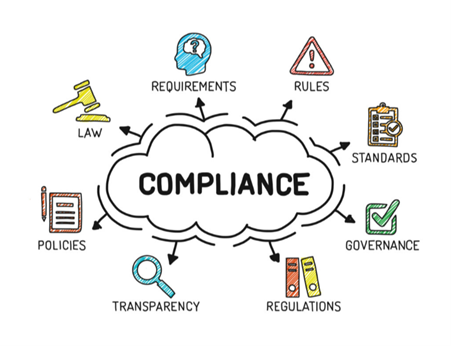Business insurance encompasses a range of policies designed to protect businesses from potential losses due to unforeseen events. These policies provide financial coverage against various risks, including property damage, legal liabilities, employee-related risks, and operational disruptions. By transferring the financial burden of certain risks to an insurance provider, businesses can focus on growth and innovation without the constant fear of catastrophic financial setbacks.
Key Takeaways
Financial Protection Against Loss
Insurance helps cover the financial impact of unexpected events like property damage, lawsuits, or natural disasters, reducing the financial burden on your business.
Employee Safety and Well-being
Workers’ compensation and health insurance protect your employees and ensure compliance with legal requirements, promoting a safer and healthier workplace.
Liability Coverage
Business insurance can help protect you from legal claims related to accidents, mistakes, or negligence, shielding your company from costly lawsuits.
Business Continuity
Coverage like business interruption insurance ensures your operations can continue in the event of a disaster, providing funds for recovery and minimizing downtime.
Reputation Protection
Insurance can help cover the costs of reputational damage due to public relations crises, helping to protect your brand’s image in the market.
Legal Compliance
Having the right insurance ensures that you meet industry and legal requirements, helping you avoid fines, penalties, and potential shutdowns.
Key Types of Business Insurance and Their Role in Risk Management
Property Insurance
What It Covers:
- Physical structures: Buildings, offices, warehouses
- Contents: Machinery, equipment, computers, furniture
- Inventory: Raw materials and finished goods
- Signage, fencing, landscaping
What It Protects Against:
- Fire
- Theft or burglary
- Vandalism
- Natural disasters (coverage for floods or earthquakes may require additional riders)
- Storms, lightning, and other environmental events
How It Helps:
Imagine a manufacturing facility catching fire. Without property insurance, the business would have to bear the full cost of rebuilding, replacing machinery, and potentially relocating. With property insurance, the business receives financial support to repair or rebuild, minimizing downtime and loss of income.
Liability Insurance
Liability insurance is essential because even minor claims can lead to lawsuits costing thousands—or millions—of dollars.
General Liability Insurance
- Covers:
- Bodily injury to third parties (e.g., a customer slips and falls on your premises)
- Property damage caused by your business operations
- Advertising injuries like copyright infringement or defamation
Professional Liability Insurance (Errors & Omissions)
- Best for: Service providers, consultants, lawyers, IT professionals, accountants
- Covers:
- Mistakes, negligence, or failure to deliver promised services
- Legal defense and court costs
Product Liability Insurance
- For manufacturers, retailers, distributors
- Covers:
- Injuries or property damage caused by defective products
- Legal defense and settlements if sued
Overall Benefit:
These policies ensure that you don’t have to pay out of pocket for costly legal battles, protecting both your cash flow and reputation.
Workers’ Compensation Insurance

What It Covers:
- Medical expenses
- Lost wages during recovery
- Rehabilitation costs
- Death benefits (if applicable)
How It Helps:
If an employee is injured while using heavy machinery or gets repetitive stress injuries from computer work, this insurance covers their medical treatment and compensates them for lost income.
Employer Protection:
- Limits legal exposure from employee lawsuits
- Demonstrates commitment to workplace safety
Business Interruption Insurance
What It Covers:
- Lost income
- Fixed operating expenses (e.g., rent, utilities, loan payments)
- Relocation costs (if temporary relocation is needed)
- Employee wages
When It Applies:
- Fire or explosion
- Natural disasters
- Major equipment failure or utility outages (if covered)
How It Helps:
Let’s say your storefront floods, and it takes two months to repair. Business interruption insurance compensates you for income lost during closure, helping you stay afloat and retain employees.
Cyber Liability Insurance
In today’s tech-driven world, cyber risks are real and rising—especially for businesses that store sensitive data or operate online.
What It Covers:
- Data breach response costs
- Customer notification and credit monitoring
- Public relations expenses
- Legal fees and fines
- Cyber extortion (e.g., ransomware)
- Loss of business income due to cyberattacks
Who Needs It:
- E-commerce businesses
- Healthcare providers
- Financial services
- Any business storing customer or payment data
Directors and Officers (D&O) Insurance

What It Covers:
- Legal defense and settlement costs related to:
- Mismanagement
- Breach of fiduciary duty
- Regulatory investigations
- Employment-related decisions
- Shareholder lawsuits
Who It Protects:
- Company directors
- Executive officers
- Board members
Why It’s Important:
Executives can be personally sued for decisions made in their professional roles. D&O insurance protects their personal assets, which is essential for attracting qualified leadership.
Key Person Insurance
This is a life insurance policy purchased by a business on a key employee or founder whose loss would What It Covers:
- Death or disability of the insured key person
- Helps offset financial impact on operations
- Can fund hiring and training of a replacement
- Used to reassure investors and creditors
Why It’s Valuable:
In small and medium businesses, a single person might:
- Drive revenue
- Hold essential relationships
- Possess critical knowledge
Strategic Benefits of Business Insurance in Risk Management
Financial Protection and Loss Mitigation

Definition & Role
Business insurance acts as a financial safety net. When unexpected events occur—such as natural disasters, accidents, legal claims, or cyberattacks—insurance coverage can absorb the financial blow. This is especially crucial for small and medium-sized businesses, where a single major loss can be devastating.
Examples:
- A restaurant suffers from a kitchen fire. Property and business interruption insurance cover the repair costs and lost income during downtime.
- A client sues a design firm for an error in a blueprint. Professional liability insurance covers legal fees and settlements.
Strategic Impact:
- Prevents liquidation or bankruptcy from large, unexpected expenses
- Enables quick recovery and continuation of business operations
- Preserves cash flow, allowing the company to fund essential functions and retain employees
Enhanced Credibility and Trust
Why It Matters
In a competitive market, trust is currency. Customers, investors, partners, and lenders want to deal with businesses that are stable, responsible, and prepared for the unexpected.
How Insurance Enhances Credibility:
- Shows potential clients that the business is professional and risk-aware
- Provides assurance to lenders and investors that assets are protected
- May be required by clients or contracts—e.g., a general contractor may need proof of liability insurance to win a commercial construction project
Strategic Impact:
- Strengthens your reputation
- Increases your chances of winning bigger contracts
- Makes your business more attractive to investors
Legal Compliance

Legal Perspective
Many types of business insurance are legally mandated, depending on your location, industry, and business structure. Failure to comply can result in fines, penalties, or even business closure.
Common Legal Requirements:
- Workers’ Compensation Insurance: Required in most jurisdictions to cover employee injuries.
- Commercial Auto Insurance: Mandatory if your business owns or uses vehicles.
- Unemployment Insurance and Disability Insurance: Required in certain states or countries.
Strategic Impact:
- Avoids fines, lawsuits, or criminal liability
- Creates a safer and more secure workplace
- Promotes compliance with broader occupational safety laws (OSHA, etc.)
Business Continuity and Succession Planning
Continuity Protection
Even well-run businesses can face severe disruptions—from natural disasters to the sudden death of a co-founder or key employee. Strategic insurance policies can make the difference between temporary closure and permanent shutdown.
Key Policies That Support Continuity:
- Business Interruption Insurance: Covers lost income and operational expenses when business activities are paused.
- Key Person Insurance: Provides funds to offset the impact of losing a key executive or specialist.
- Buy-Sell Agreements (funded by life insurance): Ensures smooth transfer of ownership if a business partner dies or exits.
Strategic Impact:
- Enables faster recovery from setbacks
- Ensures leadership stability during succession events
- Provides continuity of services to customers, preserving brand trust
Risk Transfer and Focus on Core Operations
What is Risk Transfer?
Risk transfer refers to the process of shifting the financial responsibility for certain risks from your business to the insurance provider. By paying regular premiums, you offload the potentially massive financial impact of certain events.
How It Works:
- Instead of paying $500,000 to settle a liability lawsuit, a business with appropriate coverage might only pay a $5,000 deductible—the insurer covers the rest.
- Instead of setting aside large cash reserves for emergencies, you can rely on insurance and use that capital for growth.
Strategic Impact:
- Frees up resources, time, and attention to focus on product development, sales, customer service, and innovation
- Enables scaling without fear, as risks are partially outsourced to a financially capable insurer
- Reduces anxiety and mental load for owners and executives
| Strategic Benefit | How It Helps Your Business |
|---|---|
| Financial Protection | Prevents major losses and ensures faster recovery |
| Enhanced Credibility | Builds trust with clients, investors, and lenders |
| Legal Compliance | Avoids fines and meets regulatory requirements |
| Business Continuity | Supports operations during crises and leadership changes |
| Risk Transfer | Allows focus on growth and core business functions |
Case Studies: Real-World Applications of Business Insurance
Manufacturing Company and Property Insurance
Scenario:
A mid-sized manufacturing company specializing in automotive parts experienced a devastating fire that broke out in the production area. The fire was caused by an electrical malfunction and destroyed heavy machinery, inventory, and part of the facility’s structure.
Impact Without Insurance:
Without insurance, the company would have faced:
- Immediate financial strain from repair and rebuilding costs
- Loss of equipment worth hundreds of thousands of dollars
- Potential layoffs or closure due to inability to resume operations
- Delays in delivering orders, breaching contracts with clients
How Property Insurance Helped:
- Asset Replacement: The policy covered the replacement cost of destroyed machines and raw materials.
- Facility Repair: The insurer paid for construction work to rebuild the damaged area.
- Debris Removal & Cleanup: Environmental cleanup and debris removal were included in the coverage.
- Temporary Relocation: Costs for temporary production relocation were partially reimbursed.
Strategic Benefit:
The property insurance saved the company from bankruptcy, allowed operations to resume within weeks, and maintained client relationships by ensuring minimal disruption.
Tech Startup and Cyber Liability Insurance
Scenario:
A growing SaaS startup providing cloud-based financial tools suffered a data breach when a hacker exploited a software vulnerability. Over 30,000 customer records were compromised, including personal and financial information.
Impact Without Insurance:
Without insurance, the startup would have had to pay for:
- Immediate IT forensic investigation and patching of the vulnerability
- Legal fees due to multiple lawsuits
- Mandatory customer notification and identity theft monitoring
- Reputational damage control via PR consultants and communication efforts
How Cyber Liability Insurance Helped:
- Investigation Costs: The insurer paid for cybersecurity professionals to assess and contain the breach.
- Legal Coverage: Covered legal defense costs and eventual settlements with affected users.
- Notification and Credit Monitoring: Funded communications and identity protection services for all impacted customers.
- PR Management: Paid for crisis communications and brand reputation consultants.
Strategic Benefit:
The startup retained 90% of its clients post-breach thanks to its quick, professional response. The insurance coverage allowed them to avoid severe financial losses and rebuild trust efficiently.
Retail Business and Business Interruption Insurance

Scenario:
A popular boutique clothing store located in a coastal town was inundated by a flood after a severe storm. The store had to close for six weeks to repair water damage and restock inventory.
Impact Without Insurance:
- Loss of all revenue during the closure period
- Continued operating expenses like rent, electricity, and staff salaries
- Potential long-term customer loss due to downtime
- High out-of-pocket cost for damage and cleanup
How Business Interruption Insurance Helped:
- Lost Income: The policy covered the income the store would have earned during the shutdown.
- Ongoing Expenses: Rent, utilities, and payroll were covered, ensuring staff retention.
- Restocking Inventory: The policy included assistance with partial inventory replacement costs.
- Recovery Period: Also covered losses for a short period after reopening, accounting for the ramp-up time before sales normalized.
Strategic Benefit:
The owner was able to retain staff, avoid debt, and reopen with strong momentum, thanks to the financial support provided by the insurance. Sales recovered quickly due to a well-executed comeback campaign funded through savings that weren’t depleted during the closure.
Conclusion from the Case Studies
These case studies highlight how specific insurance policies address specific risks:
| Case Study | Insurance Type | Risk Managed | Outcome |
|---|---|---|---|
| Manufacturing Fire | Property Insurance | Physical asset loss | Rebuilt without financial collapse |
| Tech Breach | Cyber Liability Insurance | Data breach, legal exposure | Maintained reputation and customers |
| Retail Flood | Business Interruption Insurance | Revenue loss from shutdown | Continued operations without debt |
Also Read : What Are Insurance Premiums and How Are They Calculated?
Conclusion
Business insurance is far more than a basic protective measure—it is a strategic pillar of sustainable business operations and a key driver of long-term resilience. In today’s fast-evolving economic, legal, and technological landscape, businesses face a wide array of unpredictable risks. From physical damage due to natural disasters to complex legal claims, cyber threats, and sudden loss of key personnel, any one of these events can severely disrupt or even dismantle an organization.
FAQs
1. What types of risks does business insurance cover?
Business insurance can protect against a wide range of risks, including:
- Property damage
- Liability claims
- Employee injuries
- Business interruptions
- Cyberattacks
- Legal disputes
2. Is business insurance mandatory?
Not all policies are required by law, but some—like workers’ compensation insurance—are mandatory in many states or industries. Requirements vary by location and business type.
3. How do I determine the right amount of coverage?
The right coverage depends on:
- Business size and industry
- Value of assets
- Potential risks and liabilities
Consulting an insurance advisor is recommended to accurately assess your needs.
4. Can I bundle different insurance policies?
Yes. Many insurers offer bundled packages, such as a Business Owner’s Policy (BOP), which often combines general liability, property, and business interruption coverage—usually at a discounted rate.
5. Does business insurance cover natural disasters?
It depends on your policy. Some property insurance covers events like fire or storms, while coverage for floods or earthquakes may require separate riders or policies. Always check your policy details.
6. How can I reduce my insurance premiums?
To lower your premiums:
- Implement risk management strategies
- Maintain a safe workplace
- Train employees on safety
- Keep a claims-free history
7. What should I do if I need to file a claim?
- Contact your insurer immediately
- Provide all required documentation
- Cooperate with the claims adjuster
Prompt action ensures a smoother resolution and quicker compensation.


